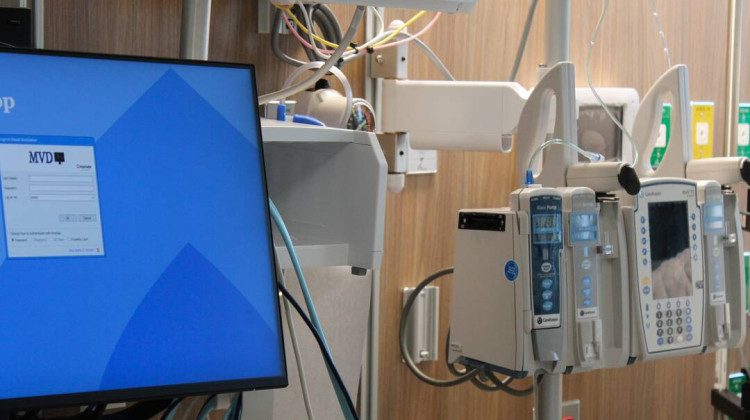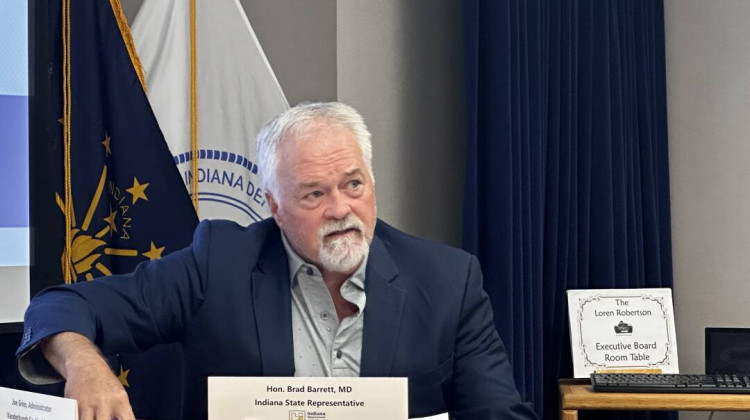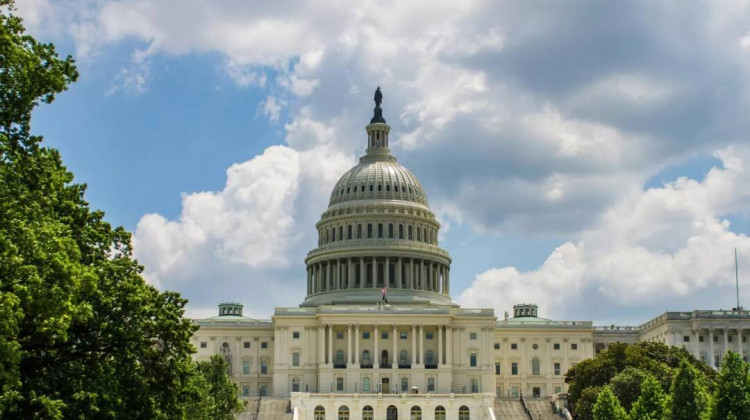
Dr. Blessing Ogbemudia graduated from Indiana University’s medical school in May. As he was celebrating with a few friends, he received an anonymous message on Instagram. It contained an audio clip of someone talking about him.
He says, “Essentially it was saying that, 'Blessing thinks, you know, he’s all that. He just got into medical school because he was Black. And you know why he was called Blessing right? Oh, because his mother was a crack addict.'”
Ogbemudia was shocked and confused. He recognized the voice as a white student at the medical school.
“Especially white individuals discrediting black individuals for their success and attributing it to their blackness, these are things that I’ve heard before,” he says. “But to hear them in the recording, that kind of pierced my soul.”

Ogbemudia contacted a dean at the school, only to find out that they were already aware of the audio clip. That — and the fact he hadn’t been alerted by school officials — made the situation even more heartbreaking for him.
“They’ve had the audio for probably over a year,” he says
In May, he and eight other students sent university officials a letter. It called for a zero tolerance policy for racist statements. They also said such incidents require an immediate suspension or expulsion.
Dr. Jay Hess, dean of the medical school, responded that the audio clip was, “reprehensible,” but any discipline related to the incident was confidential. He added that the school was taking other steps such as training on bias and reviewing the curriculum.
But some are calling for the school to move more quickly.
“Justice delayed is justice denied. And I'm so tired of the delay. Let's move," says Dr. Victoria Thomas, who completed a residency in internal medicine at the school.
Thomas says she didn’t see many doctors who looked like her at the medical school. And she didn’t feel like she truly belonged.
“And it's almost as if like, getting us here to check a box is enough," she says. "But it's not about making sure we feel warm and welcome.”
Dr. Arielle Russell is one of the people who signed the letter to university leaders. She’s a recent grad of Indiana’s medical school and is doing a residency in anesthesiology there. She’d like to see changes in how medical students are taught.
“I know that biases play a huge role in how physicians see their patients,” she says. “A lot of that behavior starts in med school with how they even teach us.”
Russell says teachers use a lot of patient case studies with stereotypes. And that perpetuates biases that students eventually will take with them into their practice.
“Fred is a 47-year-old African-American living in Chicago who has Type 2 diabetes, is obese, has hypertension,” Russell says. “Just stuff like by the description you can tell what they were going off of.”
Ogbemudia sees other challenges, too.
He says his white peers do not have to dress well when studying on campus late at night out of fear of being questioned. And, he says they don’t have to worry about patients not taking them seriously because of the color of their skin.
“There’s a lot of things that we face that, again, our counterparts don’t really have to wake up every day and be fearful of these things,” Ogbemudia says.

One step in the medical school’s improvement plan is creating the position of Chief Diversity Officer. Former pediatrics and dermatology professor Dr. Pat Treadwell was appointed in June and is talking to students about how the school can do better.
“I was appointed to be a person that students, residents and faculty could come to with concerns about diversity and that I would bring those directly to the dean,” she says.
Treadwell’s plans include updating the curriculum to have more emphasis on diversity and health equity. She’s also looking to improve diversity and inclusion within the school.
She says the administration hopes to move as quickly as possible while ensuring goals are well thought out and sustainable.
“I think that improving the climate, I think that is probably a big concern,” Treadwell says. “We won’t be perfect in probably within a year, but I hope that things are improved in just a few months.”
This story was produced by Side Effects Public Media, a news collaborative covering public health.
 DONATE
DONATE







 Support WFYI. We can't do it without you.
Support WFYI. We can't do it without you.